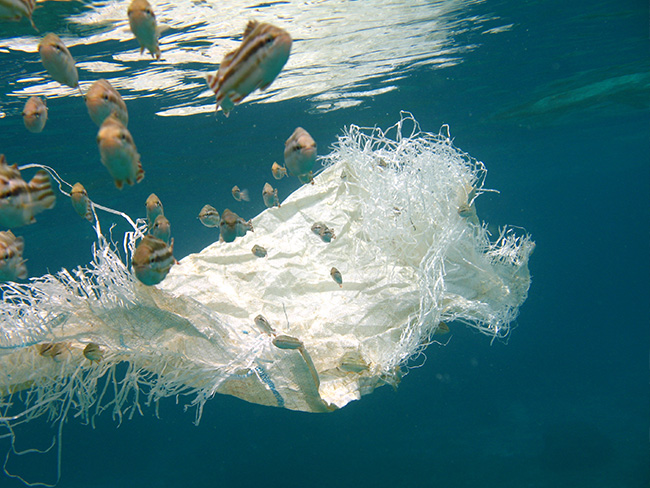The project aims at the restauration of reef systems off the coast of Esmeraldas, Ecuador, that are greatly impacted by inappropriate fishing practices and domestic plastic pollution leading to ghost nets/other plastic debris that float in the coastal waters and cover large parts of the reef habitats. This causes - as yet not quantified - direct and indirect effects on habitat biodiversity and fisheries resources of the system.
A main activity of the project is the quantification and physical removal of the ghost gear and other plastic garbage from the environment, the monitoring and comparison of the marine fauna/biodiversity post and pre- net/plastic removal (and among affected and non-affected areas), as well as attempts to recycle and sale discarded fishing gear.
Another focus of the project is on the revision of current fishing practices and on the analysis of fishery statistics to evaluate the present state of the artisanal fishery.
A third strong component of the project is the conduction of workshops with representatives of local governments, fishermen and managers for consensus building with regard to adequate measures for more sustainable fishing practices as well as the conduction of environmental education programs in the schools of the area.
The project aims comprise (1) Restoring marine reef Ecosystems along the Esmeraldas coast; (2) Assessing the sustainability of the artisanal fishery; (3) Recycling discarded fishing gear and (4) Capacity building and education.
The research approach comprises a) onsite diving-based monitoring of reef areas as well as the use of ROV for area mapping; b) fisheries monitoring and data analysis; c) stakeholder workshops and d) Capacity building and training
Research team: PI´s are Dr. Judith Denkinger and Prof. Dr. Matthias Wolff (from USFQ and ZMT respectively) as well as a Postdoc-researcher from ZMT, and a field coordinator and a research diver from USFQ; Graduate students are also associated
The project is sponsored by the German-Ecuadorian Research Cooperation Program on Biodiversity and Climate Change-CoCiBio.
Project Partner |
|---|
|
Dr. Judith Denkinger, Universidad San Francisco de Quito, Ecuador |





